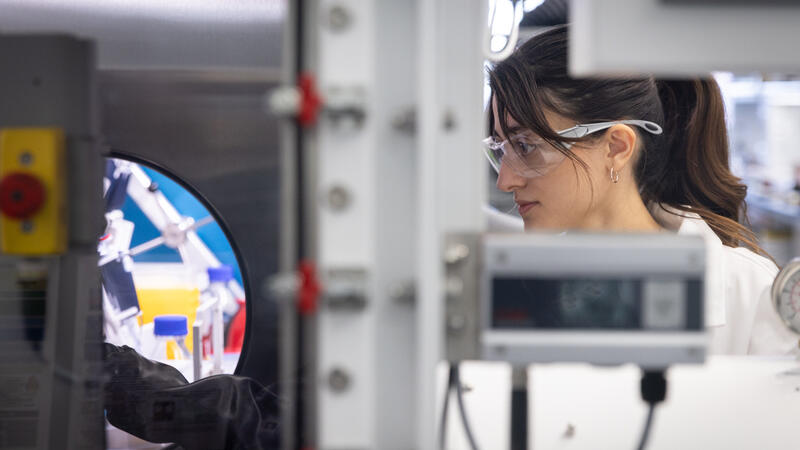News
Sustainable Biomass Conversion
Autonomous lab accelerates discoveries to harness power of microbes
An autonomous experimentation platform at the Great Lakes Bioenergy Research Center is poised to accelerate discoveries that will harness the power of microbes to advance U.S. leadership in the developing bioeconomy. With the ability to design and run multiple concurrent experiments, Proteus expands the scope and pace of exploration, potentially increasing the rate of discovery.
Three years after joining the Great Lakes Bioenergy Research Center, Michigan State University microbiologist Sarah Lebeis has been tapped to guide the center’s scientific research.
Two WEI researchers explain the connection between gene editing and clean energy in plain-language essays about their work — one with plants, the other with microbes.
GLBRC researchers at Michigan State University are racing to build climate-resilient crops before global food systems reach a breaking point.
GLBRC scientists used computer modeling to simulate the movement of every atom in the system to better understand how lignin molecules behave in various organic solvents and how the dissolved lignin building blocks interact with catalyst surfaces. The results showed that some organic solvents are more effective than water at dissolving lignin, causing the molecules to spread out more and increasing the area accessible to interact with the catalyst.
Brayan Riascos Arteaga is a third year PhD student in the Department of Civil and Environmental Engineering. He works in the Noguera lab, where he’s developing ways to utilize manure fibers as a lignocellulosic resource.
Making fuels and other products from plants requires treating the plant fibers to break apart sugars and other parts of the plant cell wall. The leftover liquid (or liquor) from the process must be treated to remove hazardous compounds before it can be safely thrown away. Therefore researchers have explored reusing spent liquor or extracting the organic compounds for use as fuels or industrial chemicals. Here, researchers identified phenolic compounds, a group of ring-shaped aromatic molecules, in spent liquor from a pretreatment process using ammonia dissolved in water.
With a doctorate in biophysics and more than a decade of experience in career and professional development, Alexandra Schnoes is uniquely qualified for her new position as workforce development manager at the Great Lakes Bioenergy Research Center. We talked to her about her own career path and her vision for recruiting, retaining, and training the next generation of GLBRC scientists.
Great Lakes Bioenergy Research Center Science Director Federica Brandizzi has been appointed director of the prestigious Plant Research Center at Michigan State University.
GLBRC scientists worked with partners at the Center for Advanced Bioenergy and Bioproducts Innovation (CABBI) and the Joint BioEnergy Institute (JBEI) on an investigation into how different pretreatment methods affect production of fuels and chemicals from sugarcane.
Using a process called adaptive laboratory evolution, scientists found that a single genetic change allows N. aromaticivorans to digest acetovanillone, an aromatic compound in biomass that most studied microbes can't digest. DNA analysis predicts that many other bacteria use similar proteins to digest this and other related aromatic compounds.





